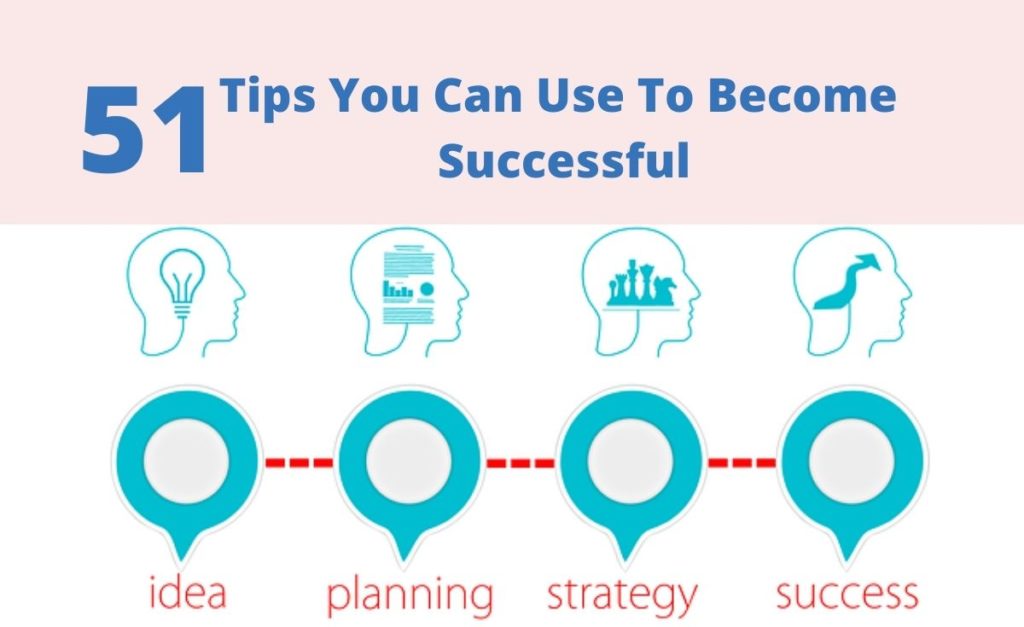Landing a new job comes with happy moments especially when you are in a competitive market or after searching for a long time with many rejections. But, there are times when you will need to negotiate a salary after a job offer no matter how badly you need the job. In case you are not happy with your pay and are worth more, it is a good idea to negotiate a salary increase with your recruiter. Learn the best strategies to negotiate a higher salary after a job offer with the highest success rate.
The process of negotiating a salary after a job offer must be planned very carefully. If you have been given an offer with a salary already, you will be trying to convince recruiters to change their minds about how much they think you are worth. With careful planning and the right strategy covered in this article, you can easily get your salary increased no matter the odds.
A good rule of thumb when it comes to salary negotiation is to focus on how the company will benefit from you, not the other way around. Focus on how your experience, skills, and qualification will help the company overcome its challenges. In order words, you need to market yourself as a solution to the company.
1. Never ask more than the industry’s top range
Even if you are worth more, the recruiter may not give you what you want when you are asking for more than necessary. Each industry has its salary ranges and companies themselves have their own ranges for every job title and career level. Before you negotiate a salary increase after a job offer, understand what other employees with similar positions make in the company and industry in general.
You also need to consider other benefits that come with your salary. The benefits you get from a job are not all about salary. Your compensation package comes in many forms such as retirement package, medical insurance, vacations, maternity leave, safety, growth opportunities, etc.
Without further ado, the following are steps to properly negotiate a salary increase after a job offer.
You might also like:
- 16 best employee retention strategies that work for 2022
- 13 reasons why businesses fail really quick
2. Focus on what you are bringing to the table
When a hiring manager/recruiter offers you a salary after a job offer, it is usually based on what the company offers and what he/she thinks you are worth. In case you don’t like the offer, you can negotiate the salary and bring it to what you think you are worth. Your job is to convince the hiring manager that you are worth more.
One of the best ways to negotiate a salary after a job offer is to focus on what you are bringing to the table. The recruiter can increase your salary as long as you are convincing enough. Think of what makes you better than other candidates they have received. Also, keep your negotiation angle to what makes you unique. If the company has been struggling to increase sales due to a lack of proper training programs, for example, you can negotiate a salary after a job offer by proposing a solution to the sales issue.
Assuming that you have used some of your training methods in the past to help other companies, use those skills as leverage. Show the recruiter what you have done in the past and how much impact you made on other businesses in terms of percentages if you can. Then, clearly justify how you are intending to revolutionize the training program for the company and increase sales. As long as you are convincing enough, the hiring manager will not hesitate to increase your salary.
At the same token, you might need to convince the hiring to manage how these solutions will further help the company retain existing customers and attract new ones. Businesses evolve around sales. As long as you can make an impact in a particular company, no hiring manager will deny you a salary increase.
3. Know the average pay in the industry
Before you negotiate a salary after a job offer, you need to know your industry and the average salary for employees with similar experience. Even if you are overqualified and the company is dying to hire you, you might not get a salary increase if what you are asking is way above the industry average. Some companies have salary ranges for particular jobs. The industry range and averages will help you decide how high you can go when negotiating a salary after a job offer.
Asking more than the industry range will lower your chances of scoring a salary increase. Some companies would rather let you go than pay you more than what everyone else is making. By default, you cannot make more money than your boss.
4. Consider the salary ranges for the job being advertised
Every job on the market will have an advertised salary, salary range, or negotiable status. If the job application stated $60,000/year fixed, you might not be able to negotiate this salary after an offer. For example, if the company pays $28/hr for every entry-level technician regardless of experience or skills, this salary cannot be negotiated. The more you know about the company’s pay ranges, industry, and the job itself, the higher the chances you will negotiate more money.
It is also essential to check the average salary for an employee with similar positions in the same company. For example, if the top range is $80,000/year for a senior engineer, you might find it difficult to negotiate $100,000/year. Always remember that each company has its salary range for each career level. Your task is to get to the top range or as high as you can get without pushing things to the limit. You don’t want the hiring manager to take away the job they just gave you.
5. Prepare your talking points
After connecting all dots, it will be time to put your negotiating pitch together. Negotiating a salary after a job offer is a task that requires careful preparation. The point is that you are trying to convince the hiring team to change their minds about how much they are willing to pay you. So, you need to be more convincing.
First, you need to understand what you are capable of, your skills, experience, and learning abilities. Most recruiters like employees who can learn anything, anywhere, and at any time, as fast as possible. In order words, they want problem solvers and those who can evolve.
When preparing your talking points, explain how your past experience, skills, and abilities will help the company achieve more with fewer resources. Focus on where the company is getting hurt and carefully explain how you will fill in the gap. Do your homework and educate yourself about the vision of the company and how you are planning to be part of that evolution. Some people take notes. Others prepare power points. Use whatever resources you have at your disposal and prepare yourself as much as you can.
6. Find a flexible schedule that works for you and the recruiter
Your hiring managers might have very difficult schedules. Since you want to negotiate a salary after a job offer, the recruiter might need to move things around to accommodate you in the schedule. So, you should be the one trying to find flexible dates and hours that work for the negotiation. That is you need to compromise too and work proactively with your recruiter to come up with flexible hours.
7. Make an appointment
Once you have to find a time that works for both of you, make an appointment. You should keep a copy of the appointment where you’ll access it easily. Some people put their appointments on their calendars or on a piece of paper. Do what works for you. When the day finally comes, show up on time. If it is an in-person salary negotiation, show up at least 15 minutes before the scheduled time. Time management is the most important skill that every good candidate needs to have. Being on time shows that you have mastered this skill.
8. Revise your key negotiation points
Before you walk into your recruiter’s office or pick up the phone, revise your negotiation key points. It is always a smart idea to do some practice days before the negotiation. The more you understand your strength and intellectual capacity, the better. How you convey this information to the recruiter will also help improve your chances of getting a higher salary after a job offer.
9. Be confident during the negotiations and don’t sound desperate
The last thing you want to be is to mumble or run out of breath when negotiating a salary after a job offer. You need to be confident in your physical appearance and mental capacity. Again, everything will start with what you know and how you are going to use that knowledge to help the company. Knowledge builds confidence and confidence builds character.
A big mistake people make when they are negotiating salary increases is to say that they deserve more money without saying why. Everyone deserves more money. But, who gets more money is another problem in itself.
As you negotiate a salary after an offer, keep the conversation neat. You also don’t want to sound like you are desperate. That is why you need to keep your conversation around your strengths and stay professional.
10. Prepare for counteroffers and questions
There are times when you might be asking to much money after a job offer. For example, if you are offered $60,000/year and want $80,000/year, your employer may not give you everything you ask. The money you are asking for could be higher than the company’s higher range for the position you have been hired for. In this case, the recruiter could be willing to meet you in the middle and give you $70,000/year.
Before you negotiate a salary after an offer, know the lowest salary you are willing to accept. Will you accept $70,000 per year if offered, considering our example?
That is you should prepare for a counteroffer and know what you will do in any case. If the counteroffer falls in line with your plans, then take it. You can also deny the offer if the new salary does not align with your career goals.
11. Consider other benefits that come with your job
Some employers offer moderate salaries due to other benefits they offer to prospective employees. For example, your employer could offer you competitive benefits such as a higher 401(k) plan matching percentages, the remote work option, a longer vacation and maternity leave, higher bonuses, etc. These benefits vary from one company to another.
Before you negotiate a salary after a job offer, consider these benefits. You might be getting paid an average salary but having the best benefits you can get with your job. Know your priorities and factor in other benefits that come with your job. If you are the right candidate for the company, the company should also be right for you.
12. Know what you want and walk away when necessary
Negotiating a salary after a job offer means that anything could happen during the negotiation. You will either get a salary increase, other benefits, or no change in the original package. If you have done your homework, built your case, and harnessed your negotiation skills, you will probably get a salary increase.
In case the recruiter decided to not increase your salary, know what need to do ahead of time. You can either take the job or leave it. It will all depend on what your goals are and your intention in the company.
If you think you can get more elsewhere, then do not take the job. You can also take the job and try it out. You might find it more satisfying due to a better work environment, friendly coworkers, better hours, etc.
13. Ask questions
Do not forget to ask some questions. Recruiters like it when you are involved in the conversation. It is also important to make sure that you fully understand the nature of your benefits and ask questions or clarification in case you don’t understand. It is better to ask than signup for the wrong stuff unknowingly.
14. Consider growth opportunities
Before you pack your things and leave, consider the growth opportunities that come with your job. For example, some companies start their employees at lower pay and bump them up in ranks and salaries after a few months of trials. If this is the case for you, you might need to stick around for a bit. It could be a good idea to take home a small salary for a few months in exchange for a competitive salary in the near future.
15. Thank the recruiting team
The fact that the hiring manager or recruiting team agreed to have a meeting with you is an indication that they care about you as an individual and as an employee. So, you need to sincerely thank them for them being there with you and considering your request. Even if things did not play out in your favor, you still need to honor their time and be grateful. At the end of the day, not everything is about you. Sometimes getting what you don’t want is a form of victory.









